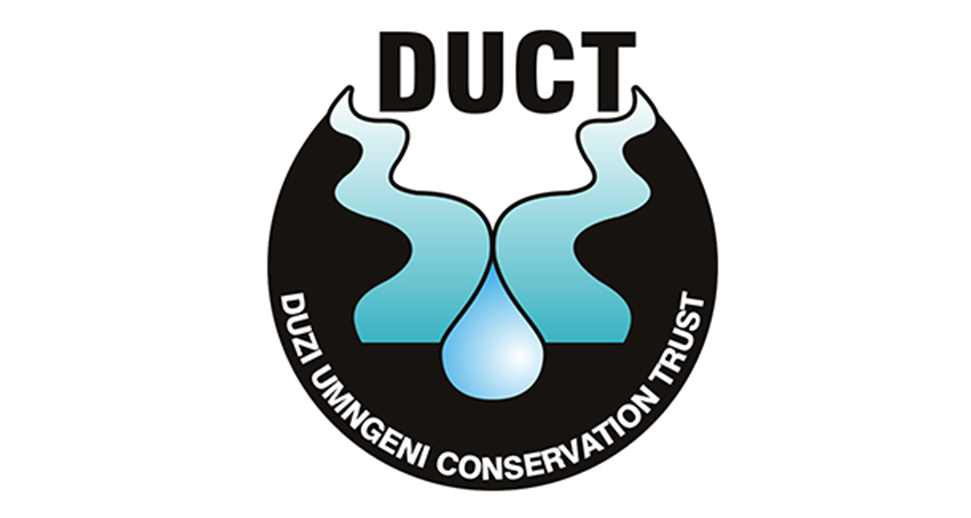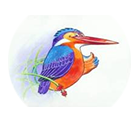The DUCT Story
"Rivers do not lie. If your city does not have a functional waste management system and if too many people do not care what happens to their waste, then far too much of that waste is going to end up in the river. If your city is not spending enough on the construction, operation and management of its sewage systems, then too much sewage is going to end up in the river. If your landowners – public and private – do not make an active effort to stem and defeat the tide of alien vegetation invading their land, then fairly soon the indigenous vegetation will disappear, with all the attendant consequences......"
Follow this link to see DUCT's publication.... THE DUCT STORY
Problem Statement
The uMsunduzi and Umgeni River systems have become badly degraded through neglect and over exploitation. With increasing demands on resources, poor governance and external threats such as global climate change these river systems will be increasingly unable to support the range of aquatic, riverine and human life which is dependent on a healthy river system.
Our Vision
DUCT’s vision is an ecologically healthy and biologically diverse uMngeni-uMsunduzi river system that provides sustained ecological goods and services for the communities that depend on them for their survival. We envisage that our communities will show respect for the rivers and will take ownership and responsibility for the condition of the rivers, seeking to preserve their natural function and beauty.
We envisage rivers where water quality and quantity are maintained at acceptable norms with healthy natural riparian zones and where the biological diversity is preserved. We have a vision of a community where all residents possess a basic understanding and appreciation of their river ecosystems. We see government, business, the scientific community and civil society cooperating in providing the resources to effectively manage the river systems.
Our Role
We recognise that the problems with the health of the rivers are large and have not developed overnight. Our vision is ambitious and will only be achieved through progressive, combined and sustained actions by government and civil society. Our role is to:
- Raise awareness of problems with river health.
- Develop, demonstrate and encourage the adoption of solutions to these problems.
- Support and learn from people and communities who wish to make a difference or are already making a difference to the health of their rivers.
- Actively engage in river health projects, education and capacity building.
- We work in partnership with other organisations, whether from civil society or government, who share our vision.
Our Mission
To champion the environmental health of the uMngeni and uMsunduzi Rivers
Our Motto
"Healthy Rivers = Healthy People"
DUCT's Strategic Areas
Duct has eight strategic focus areas. These are:
- Minimization of faecal waste in the rivers
- Reduction of solid waste in the rivers
- Reduction of industrial pollution in the rivers
- Control and eradication of invasive alien plant vegetation on the river banks and in the rivers
- Improvement of land care and reduction of soil erosion in the catchments
- Reduction of water borne diseases in the rivers
- Improvement of management of mining operations in the Valley
- Implementation of an environmental flow schedule below the major dams, as provided for in the National Water Act of 1998
Just a few highlights from Duct’s work in these eight areas over the last four years have been:
- A study carried out on behalf of the Water Research Commission which has tackled the question of why the Pietermaritzburg sewer system is so susceptible to stormwater inflows, and what can be done about it. Several very practical and effective measures have been proposed by the study.
- The development of a floating trash boom which has been installed above Campsdrift which intercepts a large percentage of the floating trash which comes down the river. Duct maintains this boom and bags the waste it catches.
- Lobbying in various forums and media for better management of Pietermaritzburg and Durban’s solid waste. Duct has highlighted the fact that millions of Rands granted by national government for solid waste management in poor areas is not used effectively.
- The organization of an annual community river clean-up day in September each year, in conjunction with the international Coastal Clean-up and Clean-up the World days. In parallel Duct has organized a primary schools environmental art competition, reaching 3 000 children.
- The initiation of the River Care Project, funded by the National Lotteries Board, which employs 10 teams of 10 to 15 employees each, to remove solid waste, as well as alien invasive plant species, from the Msundusi and uMgeni Rivers. These teams also mointor the rivers for sewerage spills and industrial waste dumping, as well as illegal sandmining activities. Not only does this project help DUCT to achieve our mission and objectives, it also allows DUCT to create employment in areas of unemployment and poverty.
- The initiation of Mini SASS workshops held at various schools in and around the uMsunduzi and uMngeni valleys, by our educator Wendy Ncgobo. These classes educate children on the importance of river care and encourage cleaner and healthier rivers. The children are also taught the implications of pollution and littering.
- The initiation of the Durban Green Corridor Project, a joint exercise with the eThekwini Metro. If fully implemented this will result in a number of tourism and environmental rehabilitation projects from Inanda to Blue Lagoon.
- The establishment of a conservancy in the Baynespruit catchment in partnership with local business and the Sobantu community to reduce the levels of industrial and sewage pollution in the Baynespruit, a tributary of the uMsunduzi.
- The establishment of active community monitoring of sewage pollution in the Howick and Mphopomeni communities, and the building of sound relations with the uMgungundlovu District Municipality to improve the management of the sewers under its jurisdiction.
- A partnership with the KZN Department of Agriculture’s Invasive Alien Clearing programme and the Msunduzi Municipality, which has resulted in a significant reduction in the amount of invasive vegetation in the Pietermaritzburg section of the uMsunduzi (work ongoing).
- The initiation of a land care programme in the upper uMsunduzi catchment, which has enabled a community team to learn and practice the principles of erosion control.
- In partnership with Umgeni Water, WSP Environmental and Talbot Laboratories the regular testing of the uMsunduzi and uMngeni Rivers for faecal pollution, and the dissemination of this information to the public (published on the Duct website). Education regarding measures that can be taken to minimize and prevent the spread of waterborne diseases.
- Aerial surveys of mining operations in the uMsunduzi and uMngeni valleys. Engagement with the Department of Minerals and Energy and other bodies about how to better regulate and manage sand winning operations. Reporting of illegal sand winning operations.
- Assistance to the KNCU in liaison with Umgeni Water and the Department of Water Affairs regarding environmental releases from dams on the uMngeni River. Lobbying for implementation of the ecological reserve flows (as provided for in the Water Act) in the uMngeni River.
HEALTHY RIVERS = HEALTHY PEOPLE



